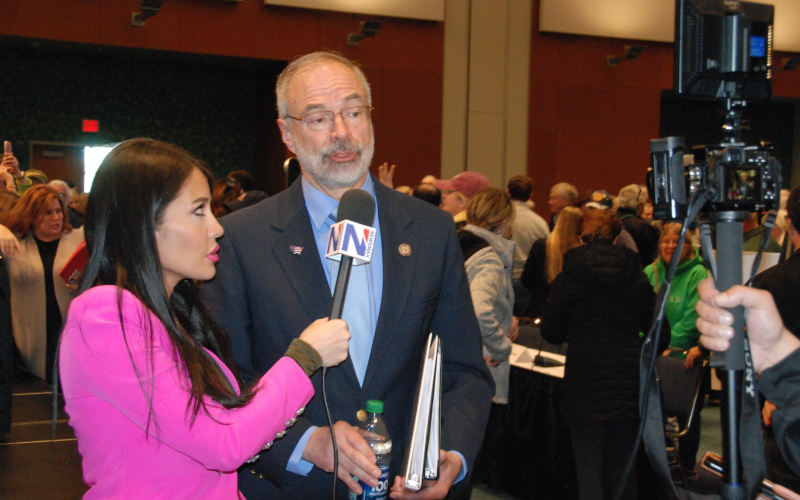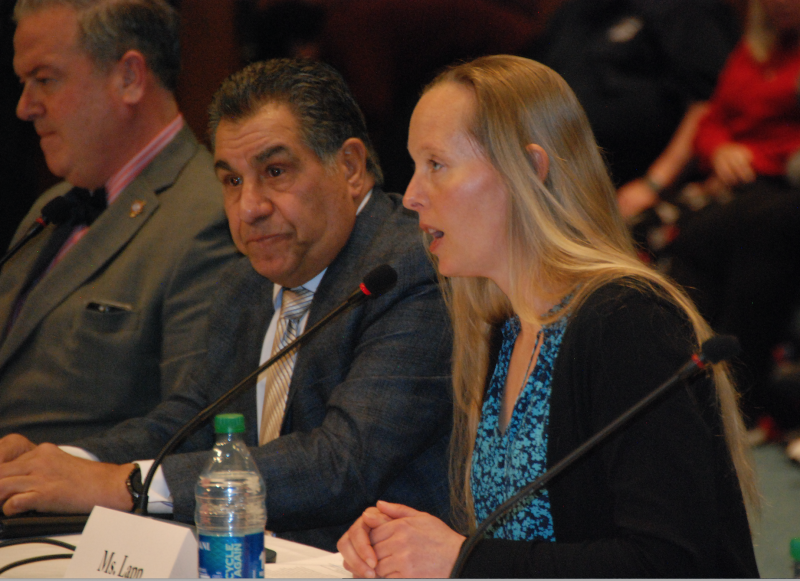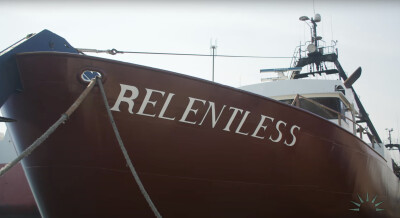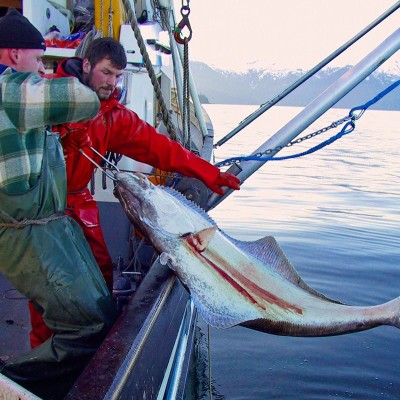Congressional Republicans say they will hold Capitol Hill hearings on the Biden administration’s offshore wind policy – and potentially call in federal ocean and energy planners as witnesses, along with wind power developers.
“It is time we examine the process,” said Rep. Jeff Van Drew, R-NJ, as he opened a first public hearing March 16 in Wildwood, N.J., centered on objections raised by critics of offshore wind projects, especially their allegation that 12 Mid-Atlantic whale strandings this winter are tied to survey work, and demands for a moratorium.
“A dozen have died and there’s no interest at all in finding out what’s going on,” said Van Drew, who has promised legislation to suspend all work on wind projects in federal waters.
He compared the strandings of humpback whales on New Jersey beaches, some of them victims of ship strikes, to the federal response for protecting the highly endangered right whale from fishing gear entanglements, which has led to gear restrictions on the New England lobster fleet.
“It’s always the little guy taking it on the chin,” said Van Drew.
Promoted on social media by wind power opponents, the hearing brought 400 spectators to pack into the Wildwoods Convention Center before officials, citing a fire marshal’s order, cut off entry with about 500 people waiting outside.
Boosted by the whale deaths and national media coverage, the debate over offshore wind has grown from a coastal issue to another front in the U.S. political and social culture conflicts.
Inside the hearing, a panel of witnesses led off with Cynthia Zipf, the executive director of Clean Ocean Action, which has broken with other New Jersey environmental groups in opposing large offshore wind developments off the state’s coast.
Zipf said her group is not opposed to wind power, “particularly on land where it is cheaper and easier to maintain,” and could support small pilot wind projects offshore to test concepts and environmental effects.
But Zipf said some estimates show a potential build-out on 2.4 million acres off the U.S. East Coast with up to 3,700 turbines: “This is too much too fast, and in a word, reckless.”
Future effects on the commercial fishing industry were another focus. Daniel LaVecchia of LaMonica Fine Foods, a seafood company in Millville, N.J., said the Atlantic surf clam industry that got its start in New Jersey in the mid-20th century will be at risk.
Early on, the clammers recommended to the federal Bureau of Ocean Energy Management and wind developers that fishermen would need 2 nautical mile spacing between turbine towers to continue harvesting shellfish safely, with the heavy dredge equipment towed behind their vessels.
“With our recommendation, we could continue to fish,” LaVecchia told Van Drew. “No assurances were ever made to the industry.”
Now BOEM and wind developers have favored spacing of 1 to 1.25 nautical mile spacing between turbines, which they say allows adequate passage for vessels and cost-effective power cabling to link the arrays.
Offshore wind development is “the single biggest threat to this industry,” said Meghan Lapp, fisheries liaison at Seafreeze Ltd. in North Kingstown, R.I., a major Northeast port for squid and other fisheries. “Our vessels will not be able to safely operate in these wind farms.”
“Yet BOEM has refused to de-conflict wind energy areas before permitting,” said Lapp, relating her years of discussions with agency officials. The process has been subordinated to developers and states making their power purchase agreements, said Lapp.
“No one in the U.S. government is at the helm of this process,” said Lapp. She called the relationship of BOEM to wind power companies “a textbook case of regulatory capture.”
“There is a lot of discussion, a lot of meetings, but never anything actionable,” Lapp added.
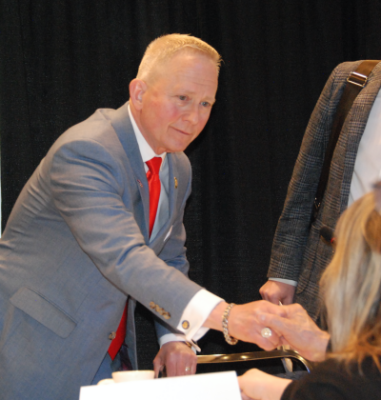
Much of the testimony focused on concerns that wind turbine arrays will reduce the New Jersey coast’s tourism business. At their edge 9 miles offshore, the planned Atlantic Shores turbines “will be clearly visible at all times,” said Robert Stern of the group Save Long Beach Island.
Stern said his group has engaged an acoustics consultant who found noise from wind turbines will propogate as far 90 miles underwater, and is now investigating how far noise from the machines might carry in the atmosphere to the Long Beach Island resort towns.
Potentially, Stern warned, “you’re looking at the destruction of the Jersey Shore experience.”
In Van Drew’s congressional district, Cape May County officials think they could see a 15 percent drop in tourism after wind power projects are built, said Michael Donahue, a lawyer working for the county on wind power issues.
“We survive through tourism and we know how delicate tourism is,” said Donahue. “We cannot afford to get this wrong.”
Last among the witnesses was David Stevenson of the Center for Energy Competitiveness at the Cesar Rodney Institute, a free-market libertarian think tank based in Delaware with ties to offshore wind opposition groups.
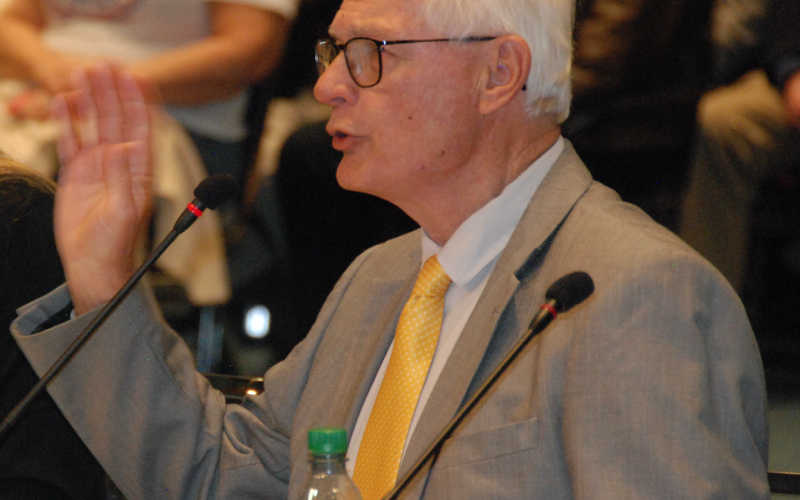
Van Drew invited other skeptical Republican congressmen to his hearing: Rep. Chris Smith, R-NJ, with his own Jersey Shore constituents; Rep. Scott Perry, R-Pa., who is taking a lead in calling for other probes of Biden administration policies; and Rep. Andy Harris, R-Md., a longtime critic of offshore wind.
“The fix is in,” Harris asserted several times, complaining federal officials have failed to respond to local concerns from coastal communities.
“We wouldn’t know about it if it wasn’t for these whales washing up,” said Perry. “This company (wind developer) Ørsted needs to be sitting in front of a congressional committee.”
“This is a cover-up in real time,” charged Smith, who is calling for a Government Accountability Office report on how offshore wind planning has been conducted.
The congressmen focused criticism on both the Biden administration and New Jersey Democratic Gov. Phil Murphy’s administration, which avidly promotes ambitious offshore wind goals.
Van Drew said he and other congressional critics will keep the pressure up.
“This is not the last hearing,” he said. “We are not giving up on this.”
